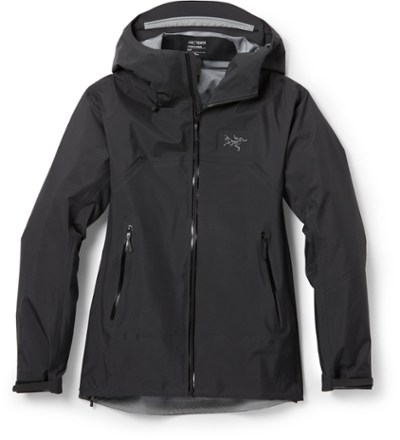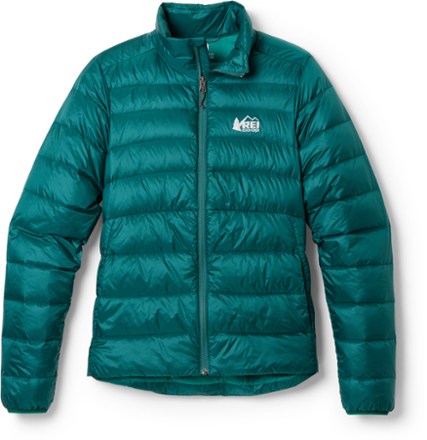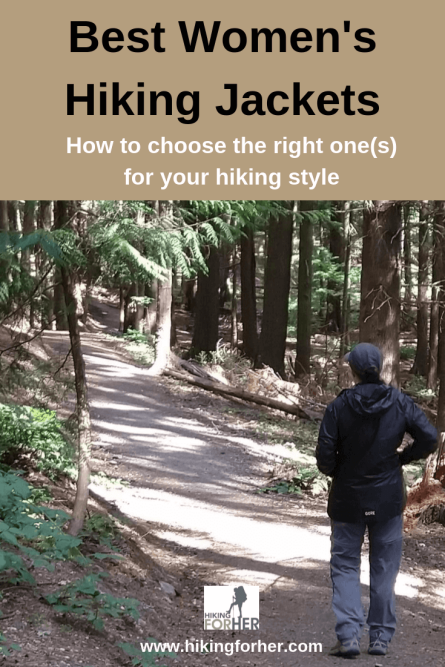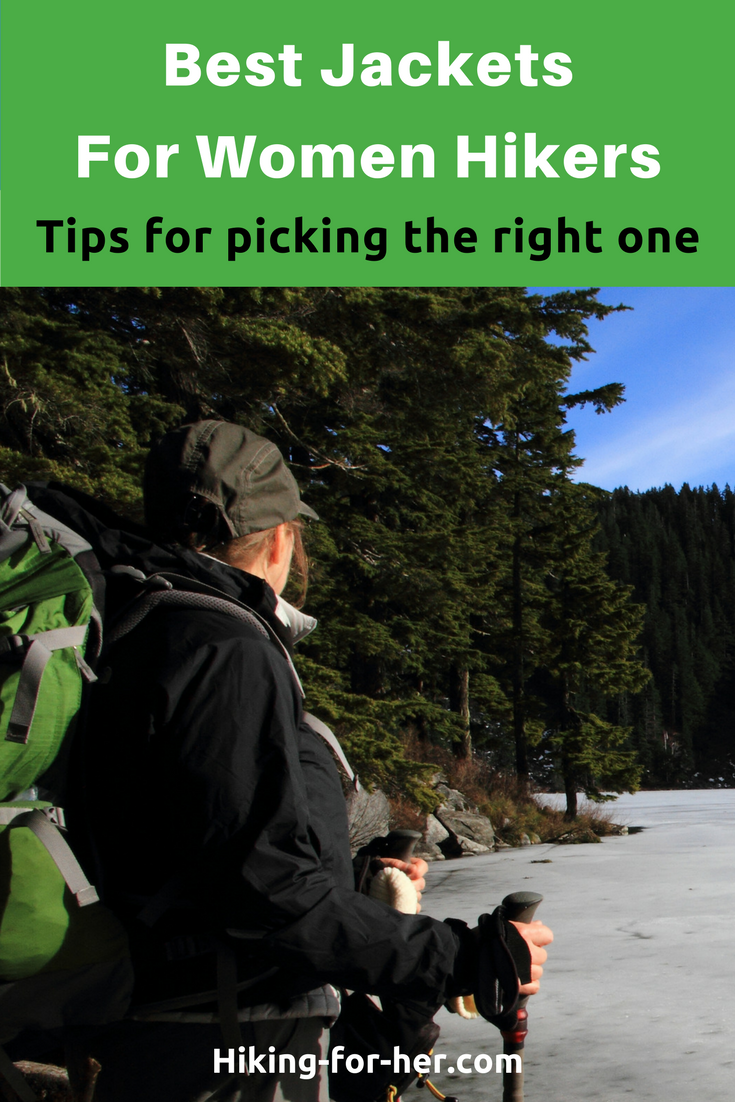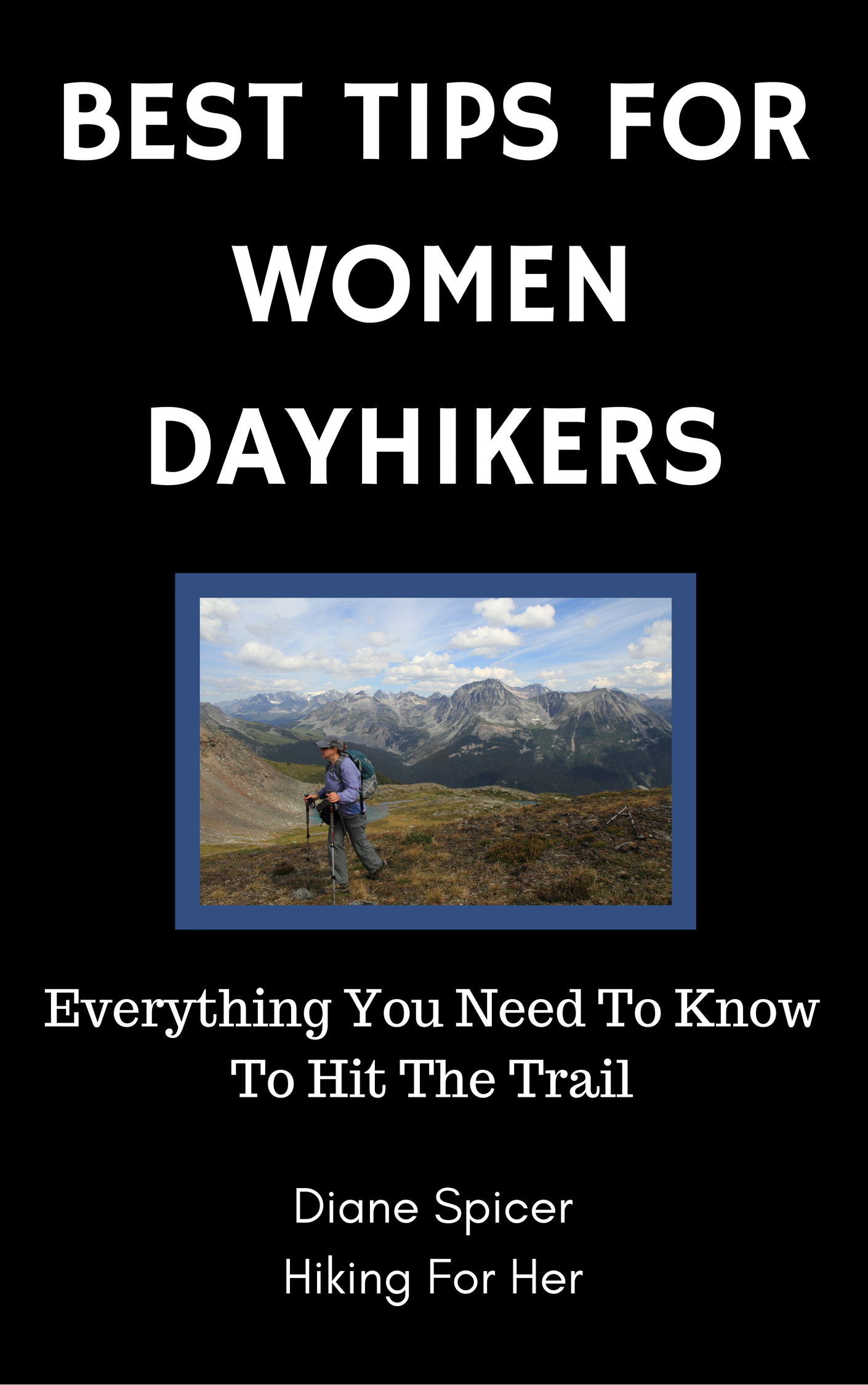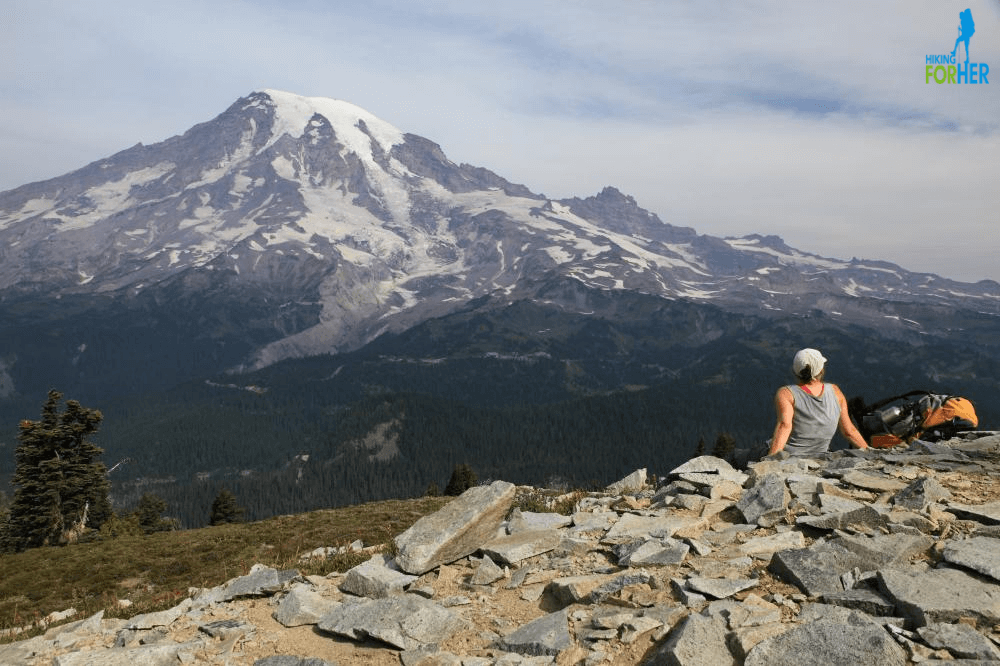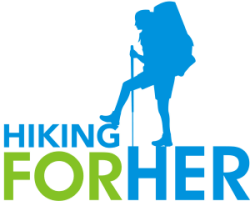
The Best Hiking Jackets
Will Keep You Happy On Any Hike
By Diane Spicer
The best hiking jackets are a great combination of fair price, good looks, and function.
That's true of any of the best hiking clothing available today.
Women's hiking jackets also need a different fit from men's jackets, given our extra bits of anatomy up top plus shorter torsos.
Wondering what to wear hiking when the weather calls for a jacket?
Drop down to my recommendations
Or you can drop down to the Best Hiking Jackets FAQ
Best Hiking Jackets FAQ
Here are some quick answers to the questions I get from hikers all over the world. Click on a question to get started.
What kind of jacket is best for hiking?
What kind of jacket is best for hiking?
For mild weather conditions, the best jacket for hiking is lightweight and packs down small in your backpack. It also is made of water repellent fabric such as DWR treated nylon.
For wet weather, the best hiking jacket is waterproof and has a hood that can be cinched down to protect your face and neck. It is cut a bit longer in the back to protect your legs, even when you are wearing a backpack.
For winter hiking, a fully lined and waterproof hooded jacket works hard to trap body heat and repel moisture. Down is a great choice for hikers because it keeps you warm even when wet.
And you can't go wrong with a heated fleece jacket like this one.
How do you choose the best hiking jacket?
How do you choose the best hiking jacket?
You use the tips on Hiking For Her!
Long story short, you browse the options from trusted names in hiking jackets: REI, Arc'teryx, North Face, Helly Hansen, Patagonia, Columbia.
Shop for a good deal, becoming an REI Co-op member to save lots of cash. Their return policy and customer service will help you correct any mistakes you make.
Backcountry is also a great place for discounts on good brands.
Try on several styles of jackets, always keeping in mind what you want the jacket to do for you (see question above).
Talk to other hikers and pay attention to the hiking jackets you see on the trail, too.
How should a hiking jacket fit?
How should a hiking jacket fit?
This is an important question.
You want a jacket with room for bending and twisting as you pick up your backpack. But you don't want it flapping in the wind, allowing cold air up your arms or waist.
Your goal: Snug, but not a death grip.
Try on the jacket and raise your hands above your head. Does the jacket ride up? Bind you around the shoulders? It's too small.
Now bend over and touch the ground. Again, does it ride up or bind anywhere? You want freedom of movement in a hiking jacket.
Don't be afraid to go up one size, but look for customization options.
Some hiking jackets can be adjusted at neck, waist and hip with cords, snaps, zippers or ties. These adjustments make a jacket more versatile, taking you through three season hiking as you wear more or fewer layers of clothing.
Why do hikers wear layered clothing?
Why do hikers wear layered clothing?
A hiker has to face unpredictable conditions, all day long and sometimes for many days in a row.
Dressing in layers gives her options to meet a wide range of temperatures and precipitation. This maximizes her chances of staying safe and comfortable.
Hikers wear a midlayer (like a vest or long sleeved shirt) between a base layer (tank or short sleeve top with sports bra) and an outer layer (jacket) to trap body heat and prevent hypothermia.
A base layer is worn to wick away perspiration and regulate body temperature. It can be used as an outer layer in very mild conditions.
Every hiker needs to bring an outer layer on every hike, part of the hiking Ten Essentials. A jacket and long pants will repel moisture and insects while keeping the body warmer. The choice of outer layer fabrics will depend on temperature and moisture conditions.
More details and suggestions for a hiking layering system right here for you!
What is the thinnest but warmest jacket for hiking?
What is the thinnest but warmest jacket for hiking?
A hiker wants a lightweight, thin jacket that acts as a cocoon to keep in body heat in the face of wind, cold and damp conditions.
A down (goose or duck) jacket, often called a puffy, can provide heat without bulk, even when wet (look for treated down for maximum dryness).
A fleece jacket is more bulky but still lightweight. It will trap body heat in windy conditions and repel moisture to a certain degree.
Sometimes a thin down vest worn over a long sleeve wicking shirt can act as a thin but warm jacket in dry but cool conditions.
Thin cotton is not a suitable fabric for hiking jackets. It does not retain body heat and becomes heavy when wet. It dries slowly, retains odors and feels clammy and cold against the skin. Say no to cotton hiking jackets unless you are in Death Valley in August.
Specific tips on how to choose
the best womens hiking jacket
Coming up are some tips you can use to find exactly the best hiking coats for your type(s) of hiking.
It might seem tedious to take such care when selecting a women's hiking jacket.
But these hiking tips will maximize the chances of finding the perfect hiking jacket for your plans.
First tip: look at the best hiking jackets this way...
Think in terms of your safety, comfort and well being when you're learning how to choose women's jackets for hiking.
Don't let price throw you.
I've paid full price for two jackets many years ago, and am still wearing them for my extreme hiking adventures such as in Greenland and Alaska.
They still keep me dry, which keeps me safe.
Well worth my investment!
Need another way to view this?
Ask for these jackets as gifts!
- I'm sure someone in your life would love to watch your eyes light up when one of the best hiking jackets lands in your lap.
Let's look at some important
jacket quality details you are paying for
First things first
The first thing to consider when you look at any hiking jacket at any price point is how many layers of clothing you'll be wearing beneath it.
- Don't have a hiking clothing layering system yet? Read this.
While you're on the trail you'll be working up a sweat, and maintaining a higher body temperature than if you were lounging around at base camp or in your tent.
Choose a jacket that accommodates the number of layers you'll be using, and realize that not every hiker will want to wear numerous layers.
- In fact, you might want a more fitted jacket, worn with fewer layers, to prevent wind and rain from blowing up your backside.
This particular hiking jacket is a fairly roomy shell, allowing for layers beneath it without hindering your movements.
Black Diamond makes this roomy shell with stretchy fabric, at a lower price point:
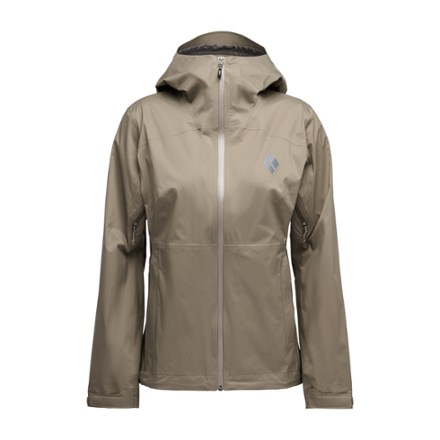
|
Lots of good features here:
|
Important question about the best hiking jackets:
Do you need a hood?
My recommendation is to always purchase a jacket with a hood, but look for the kind that tucks the hood away in a zippered pouch at the neckline when it's not needed.
The best of both worlds!
Another tip: The hood should provide an overhang, to keep rain and trail debris off your face. It should also shelter your ears and neck from the wind when it's cinched down (be sure there's a cinching cord).
Are the best hiking jackets hip length, or longer?
Which length works best for you?
Hip length will keep you drier, but will ride up a bit from your pack.
- This shouldn't be a problem if your backpack has a waterproof cover, and you're wearing rain gear.
If you sit on cold rocks or soggy ground on your hikes, look for a jacket which will cover your backside regardless of how tall you are.
- A longer jacket will also be an advantage if you're hiking with a short daypack in wet conditions.
Pay for the right fabric choices
Having said that, you do want your body heat to dissipate without creating an internal rain shower.
Again, expect to pay for the fabrics which are breathable.
The fabrics should also bend with you and create minimal noise, although there are degrees of success depending upon which blend of fabrics is used.
- If the sound of your pants swishing with every step drives you crazy, look for pants that are NOT made of nylon.
Another tip: All points of regular wear and tear (wrists, neckline) should be reinforced with extra stitching or fabric, meaning the life span of this jacket is extended.
You should also be able to make adjustments at the neck and cuffs, to follow the weather conditions and your internal temperature fluctuations.
Look for velcro, snaps, zippers or draw cords to customize the fit.
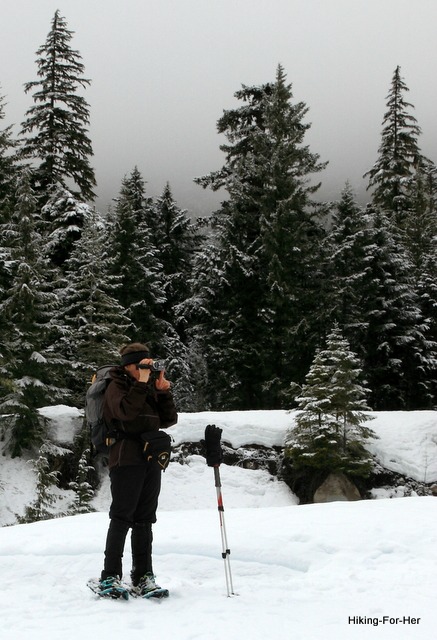 The best hiking jackets accommodate layers beneath them without hindering your movements.
The best hiking jackets accommodate layers beneath them without hindering your movements.
Something you might not think about... but should
Zippers are important.
You want an easy up and down central zipper that won't get stuck or jammed when it's cold and wet and your fingers get clumsy.
Two way zipper motion is a great feature (you can begin to zip it from top or bottom).
You also want armpit vents, meaning zippers in your pit areas to allow body heat and moisture to escape. This allows you to regulate your body heat without removing the jacket.
Some jackets also include short zippers on the chest area but offset from midline, another option for ventilation.
Zippered pockets hold your gear more securely, and don't make the noise of a velcro closure.
And it goes without saying that zippers need to be easy to access with a tab even with gloves on.
Fair warning:
the best hiking jackets will be expensive
That statement is true, up to a certain point.
There are particular brands of athletic clothing that have higher price points than others, but quality is synonymous with their names:
- North Face
- Arc'teryx
- Patagonia
- Helly Hansen
- Outdoor Research
...just to name a few of the brands I've invested in when shopping for weatherproof hiking clothing.
REI Co-op also makes good jackets. Read my review of their Flash Hybrid Hoodie here.
The trick to avoiding sticker shock on a women's hiking coat?
Shop at the end of the season to scoop up deals.
You'd be surprised how much of a discount you can discover with a little detective work.
If you approach this purchase as an investment in your well being as a hiker, and know that quality brands deliver years of good performance, the sticker shock may be lessened for you.
The links to the best hiking jackets I provide on this page are affiliate links, meaning you pay nothing extra to send a small commission to Hiking For Her.
Important hiking jacket buying tip
Always check REI Co-op's Outlet section first!
Then go to Backcountry, where name brands galore can be had for steep discounts.
Mid range price hiking jackets
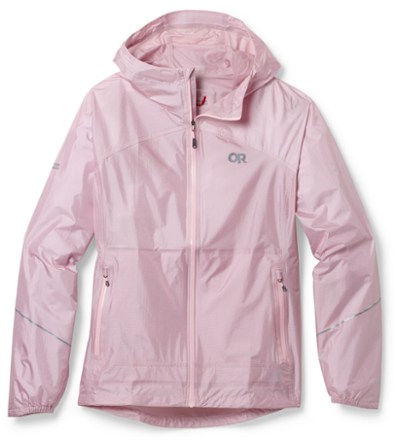
|
This one has a lot going for it. Windproof and waterproof, yet breathable. Hip length. Sizes to 3X. Hood. Wow! Take a hard look at this women's hiking jacket before reading further. |
If you love the idea of a heated fleece hiking jacket, read my review of one I wear when it's windy and cold.
Lower price point jackets
When my life does not literally depend on my jacket, I wear less expensive brands.
I know that I won't get the same level of performance and durability, and I'm okay with that.
If you're just starting out as a hiker, you'll want good quality at an affordable price point until you get a feel for the types of hiking you prefer.
Here's an inexpensive jacket that I love for its fit and function.
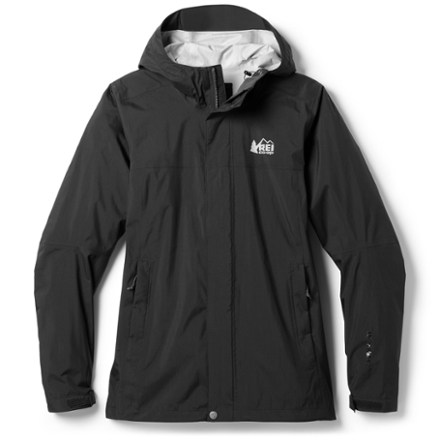
|
Notice that it's made of water repellent polyester, has a hood, and is hip length.
However, it's not heavy duty so it shouldn't be put in extreme conditions and expected to perform well over long periods of time.
And if I were to snag or rip this jacket, I wouldn't cry buckets full of tears like I would if my Arc'teryx jacket got trashed! Soft shell jackets like these will be a good choice for mild weather, and come in various price points.
|
Warm hiking jackets
Sometimes you know that you are going to face cooler conditions, such as in early spring or fall hiking.
Other times, you aren't sure what the weather holds, so you want to be prepared for cold conditions.
In that case, a warm jacket that packs down small is your best bet.
One of the best hiking jackets at a lower price point:
If you want more fill power (more warmth with hardly any increase in weight), they also have this 850 hoodie version:
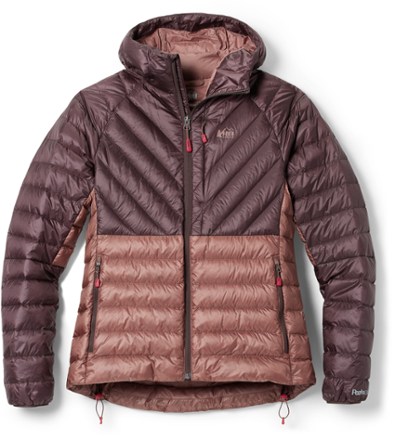
|
I happen to own this one, too, and it's well used. It's been to Alaska on backcountry adventures as well as on my frequent local day hikes. I love the cozy hood, snug hood, and ample pockets! |
The best hiking jackets fit your body & your budget
If you're just starting out as a hiker or backpacker, don't spend a lot of money until you've decided which type of terrain and climate you want to explore.
You'll soon build up a gear locker filled with the best hiking gear for your particular needs.
Always look for versatility and durability. Remember that these 2 attributes are well worth the money.
Now you're ready for your quest for the best hiking jackets!
Or maybe you need some more tips on finding the best women's athletic clothing for hiking.
- Gotcha covered! (small but heartfelt pun)
Home page > Best Hiking Gear >
Best Hiking Jackets For Women Hikers
Want to create a small miracle?
Use my links to purchase your gear, and a very modest amount of money flows to Hiking For Her to maintain this site.
It costs you nothing extra to be a miracle worker.
Your support is deeply appreciated, thank you.
|
I get emails all the time about what I wear, eat, carry and love to use on the trail. That's
why I provide affiliate links to you: the best gear that I use myself and have seen used by other hikers is instantly
available for your consideration, and the gear company sends a few
pennies per dollar to this reader-supported hiking website. There is no added cost to you! Everyone ends up a winner: Great gear for you, strong gear companies, and more free hiking tips for everyone. Thanks very much for your support. It's warmly and sincerely appreciated. It also helps send these hiking tips to all your virtual trail buddies around the globe. |
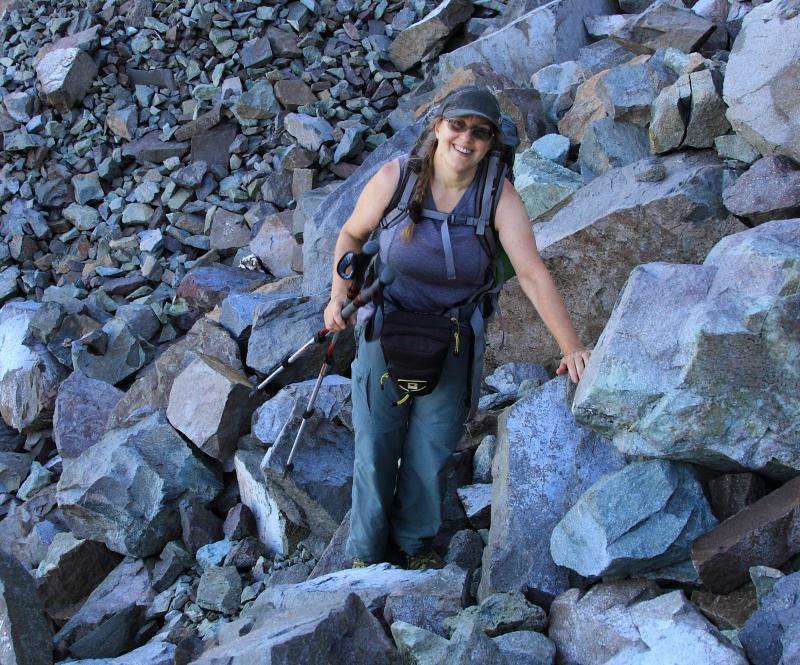 |
